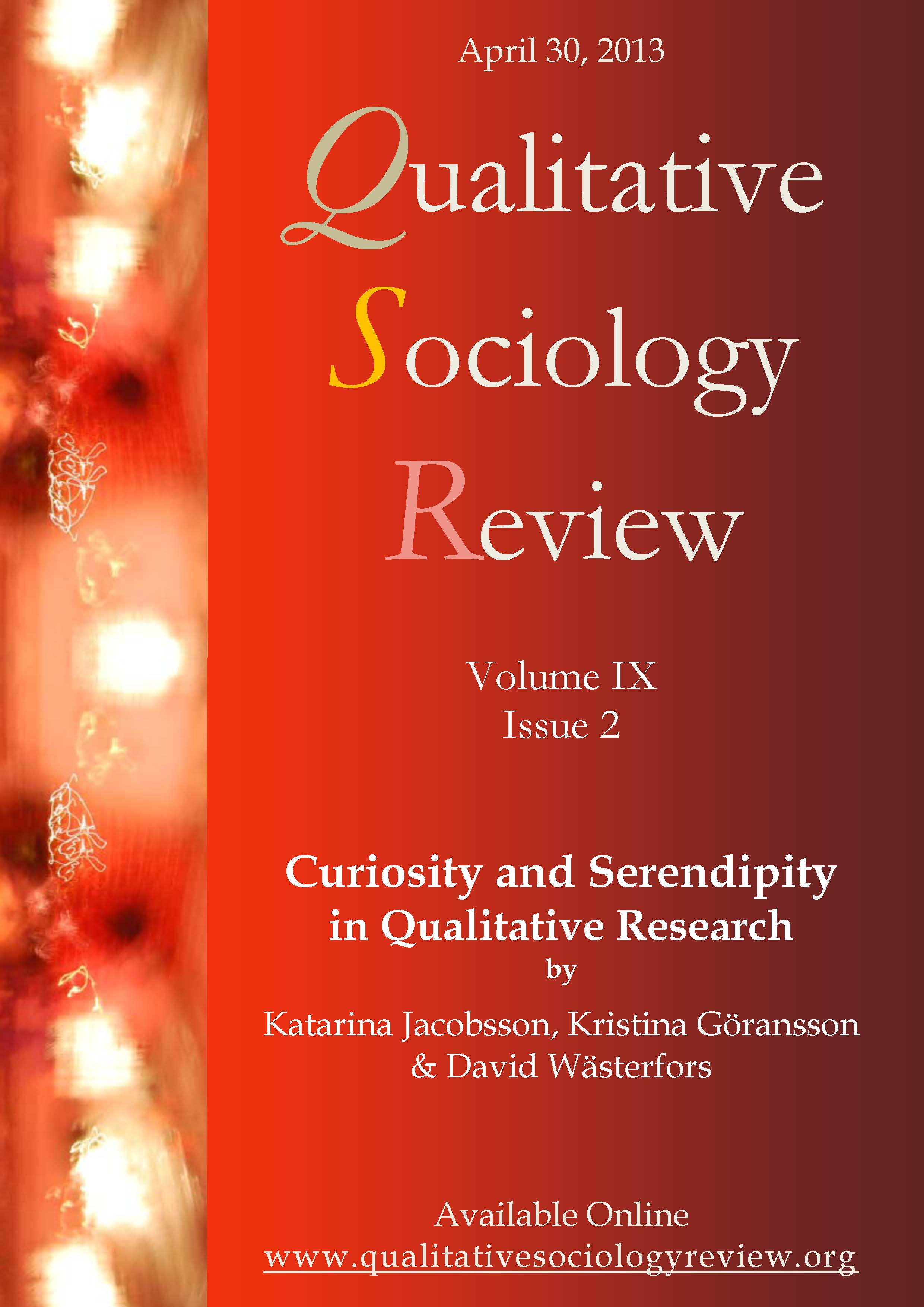Ethnography and Craft Knowledge
DOI:
https://doi.org/10.18778/1733-8077.09.2.06Keywords:
Ethnography, Art, Aesthetics, Creativity, Grounded TheoryAbstract
The paper has twin themes: the creative work of ethnographic interpretation, and the ethnographic interpretation of creative work. Illustrated with reference to recent and current fieldwork on craft, dance, and opera, it suggests some ways in which the ethnographer might creatively engage with her or his chosen fields. It criticizes the current view of “grounded theory,” which is found to be far too procedurally driven, in favor of more creative explorations of data.
Downloads
References
Atkinson, Paul. 2006. Everyday Arias: An Operatic Ethnography. Lanham, MD: AltaMira Press.
Google Scholar
Atkinson, Paul. forthcoming [a]. “The Mastersingers: language and practice in an operatic master class.” Ethnography and Education.
Google Scholar
Atkinson, Paul. forthcoming [b]. “Blowing Hot: The ethnography of craft and the craft of ethnography.” Qualitative Inquiry.
Google Scholar
Atkinson, Paul. n.d. “Tango: Siempre amor.” Unpublished article.
Google Scholar
Atkinson, Paul, Amanda Coffey, and Beverley Holbrook. 1996. “Qualitative Data Analysis: Technologies and Representations.” Sociological Research Online 1(1). Retrieved May 10, 2010 http://www.socresonline.org.uk/1/1/4.html Reprinted in Qualitative Research, edited by A. Bryman, R. G. Burgess. London: Sage, pp. 165-182.
Google Scholar
Atkinson, Paul, Sara Delamont, and Richard Watermeyer. forthcoming. “Expertise, authority and embodied pedagogy in operatic master classes.” British Journal of Sociology of Education.
Google Scholar
Bazeley, Patricia. 2007. Qualitative Data Analysis with NVIVO. London: Sage.
Google Scholar
Becker, Howard S. 1998. Tricks of the Trade. Chicago: University of Chicago Press.
Google Scholar
Birks, Melanie and Jane Mills. 2010. Grounded Theory: A Practical Guide. London: Sage.
Google Scholar
Bryant, Antony and Kathy Charmaz, (eds.). 2010. The Sage Handbook of Grounded Theory. London: Sage.
Google Scholar
Buszek, Maria Elena, (ed.). 2011. Extra/Ordinary: Craft and Contemporary Art. Durham, NC: Duke University Press.
Google Scholar
DOI: https://doi.org/10.1215/9780822392873
Calhoun, Craig and Richard Sennett, (eds.). 2007. Practicing Culture. London: Routledge.
Google Scholar
DOI: https://doi.org/10.4324/9780203944950
Charmaz, Kathy. 2012. Constructing Grounded Theory. 2nd ed. London: Sage.
Google Scholar
Friese, Susanne. 2011. Qualitative Data Analysis with ATLAS.ti. London: Sage.
Google Scholar
DOI: https://doi.org/10.4135/9781529799590
Glaser, Barney and Anselm Strauss. 1967. The Discovery of Grounded Theory. Chicago: Aldine.
Google Scholar
Grasseni, Cristina, (ed.). 2007. Skilled Visions: Between Apprenticeship and Standards. Oxford: Berghahn.
Google Scholar
Harper, Douglas. 1987. Working Knowledge: Skill and Community in a Small Shop. Chicago: University of Chicago Press.
Google Scholar
Savigliano, Marta. 1995. Tango and the Political Economy of Passion. Boulder, CO: Westview Press.
Google Scholar
Sudnow, David. 1978. The Ways of the Hand: The Organization of Improvised Conduct. Cambridge, MA: Harvard University Press.
Google Scholar
Tavory, Iddo and Stefan Timmermans. 2009. “Two cases of ethnography: Grounded theory and the extended case method.” Ethnography 10(3):243-263.
Google Scholar
DOI: https://doi.org/10.1177/1466138109339042
Taylor, Stephanie and Karen Littleton. 2012. Contemporary Identities of Creativity and Creative Work. Aldershot: Ashgate.
Google Scholar
Urquhart, Cathy. 2012. Grounded Theory for Qualitative Research. London: Sage.
Google Scholar
DOI: https://doi.org/10.4135/9781526402196
Downloads
Published
How to Cite
Issue
Section
License

This work is licensed under a Creative Commons Attribution-NonCommercial-NoDerivatives 4.0 International License.











